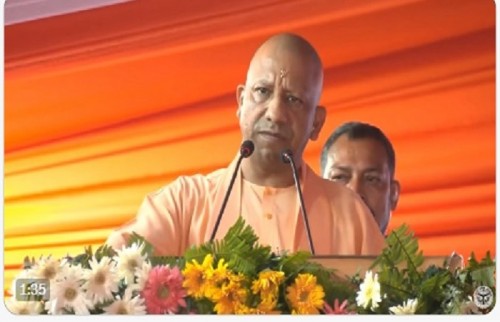The Uttar Pradesh government will probe the diversion of crop loans taken on Kisan Credit Cards for spending on weddings and other luxury items.
State Agriculture Minister Surya Pratap Shahi said that the department has been receiving a significant number of complaints about farmers rechannelling the crop loans.
“The department will step up the campaign to check this practice. If it is a crop loan, it should be used for only cropping and boosting production. Its diversion needs to be checked aggressively,” he said.
The minister said that a good number of farmers have been defaulting heavily on repayment of loan after diverting it for other purposes. “The defaulting amount accounted for a good part of the Rs 36,000 crore crop loan which was waived off by the state government in the past (2017 when Yogi government came to power in UP for the first time),” he said.
As a matter of fact, the state government waived off farm loans worth Rs 200 crore in 2022, the year when the state went to polls.
The scheme covered around 33,000 farmers straddling 19 districts — Gorakhpur, Ayodhya, Kannauj, Muzaffarnagar, Gautam Buddha Nagar, Sambhal, Kushinagar, Lakhimpur Kheri, Hathras, Jaunpur, Ghaziabad, Ghazipur, Ballia, Agra, Auraiyya, Kushinagar, Shamli, Sitapur and Sonbhadra.
The crop loans are essentially provided through the Kisan Credit Card (KCC) issued by commercial, rural and cooperative banks operating in the state.
Records show that the state government managed to provide crop loans of around Rs 82 lakh crores to the farmers in 2022-23.
This is expected to go up further beyond Rs 1 lakh crores in 2023-24. The increase, experts said, is essentially because of the rise in the MSP and the market price of the crop.
Officials said that as many as 1.5 crore farmers are registered under KCC, out of which around 50 lakhs have already applied for loans from various banks in the current fiscal year.
The farmers are provided loans at an interest of around 7 per cent. This gets further reduced to 4 per cent if the farmer pays back within the stipulated time frame of one year.
Experts point to the 2020 Reserve Bank of India report which said around Rs 3.12 trillion (Rs 3.12 lakh crore) had been waived by Centre and the various state governments since 2009.
The report categorically states that the waivers were happening due to political reasons as was evident from the timing of the announcements – all happened in election years.


